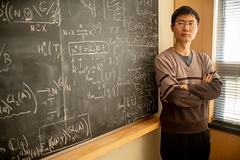Processing Request...
Processing Request...


Actuaries analyze the financial costs of risk and uncertainty. They use mathematics, statistics, and financial theory to assess the risk that an event will occur and they help businesses and clients develop policies that minimize the cost of that risk. Actuaries’ work is essential to the insurance industry.
Lebih Lanjut

Agricultural engineers—also known as biological and agricultural engineers—work on a variety of activities. These activities range from aquaculture (raising food, such as fish, that thrive in water) to land farming to forestry; from developing biofuels to improving conservation; from planning animal environments to finding better ways to process food.
Lebih Lanjut

Agricultural and food scientists work to ensure that agricultural establishments are productive and food is safe.
Lebih Lanjut

Airline and commercial pilots fly and navigate airplanes, helicopters, and other aircraft. Airline pilots fly for airlines that transport people and cargo on a fixed schedule. Commercial pilots fly aircraft for other reasons, such as charter flights, rescue operations, firefighting, aerial photography, and aerial application, also known as crop dusting.
Lebih Lanjut

Architects plan and design houses, office buildings, and other structures.
Lebih Lanjut

Biochemists and biophysicists study the chemical and physical principles of living things and of biological processes, such as cell development, growth, and heredity.
Lebih Lanjut

Chemists and materials scientists study substances at the atomic and molecular levels and the ways in which substances react with each other. They use their knowledge to develop new and improved products and to test the quality of manufactured goods.
Lebih Lanjut

Conservation scientists and foresters manage overall land quality of forests, parks, rangelands, and other natural resources.
Lebih Lanjut

Environmental scientists and specialists use their knowledge of the natural sciences to protect the environment and human health. They may clean up polluted areas, advise policy makers, or work with industry to reduce waste.
Lebih Lanjut

Hydrologists study how water moves across and through the Earth’s crust. They can use their expertise to solve problems in the areas of water quality or availability.
Lebih Lanjut

Microbiologists study the growth, development, and other characteristics of microscopic organisms such as bacteria, algae, and fungi.
Lebih Lanjut

Physicists and astronomers study the ways in which various forms of matter and energy interact. Theoretical physicists and astronomers may study the nature of time or the origin of the universe. Physicists and astronomers in applied fields may develop new military technologies or new sources of energy, or monitor space debris that could endanger satellites.
Lebih Lanjut

Statisticians use statistical methods to collect and analyze data and help solve real-world problems in business, engineering, the sciences, or other fields.
Lebih Lanjut

Urban and regional planners develop plans and programs for the use of land. Their plans help create communities, accommodate population growth, and revitalize physical facilities in towns, cities, counties, and metropolitan areas.
Lebih Lanjut

TIkuti ujian psikometri percuma kami untuk mengetahui minat dan potensi anda!
Cubalah Sekarang!

Tempah lawatan kampus melalui kami!
Tempah Sekarang!

Kirim keputusan anda ke Edumetry, dan senarai biasiswa yang layak untuk hasil anda akan disaring untuk anda!
Cubalah Sekarang!